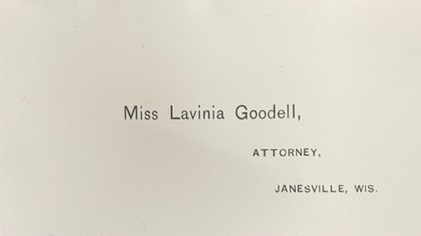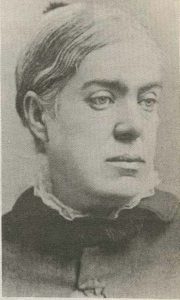“Went to a temperance drama at Lappin’s Hall.”
Lavinia Goodell, February 10, 1874
Janesville, Wisconsin has a wealth of historical buildings remaining, including some frequented by Lavinia Goodell when she lived in the city in the 1870s. One such building is the Lappin-Hayes Block located at the corner of Main and Milwaukee Streets, in the heart of the city’s downtown.

Janesville is named after Henry James, who built a timber house on the Rock River, on the site of the Lappin-Hayes block, in 1836. Thomas Lappin, an early Janesville merchant, built a two-story store there in 1842. In 1855, Lappin erected a four-story red brick Italianate building on the site. The ground floor housed stores. The second floor had office space leased to attorneys, physicians, and other professionals. John Cassoday, one of Lavinia Goodell’s mentors, who later became Chief Justice of the Wisconsin Supreme Court, had his office in Lappin’s Block. The top floors of the building contained two performance halls, Lappin’s Hall and Apollo Hall. Lappin’s Hall was the larger one. It held hundreds of people and hosted many performances and community events. In her letters and diaries, Lavinia Goodell mentioned attending many functions there.

















